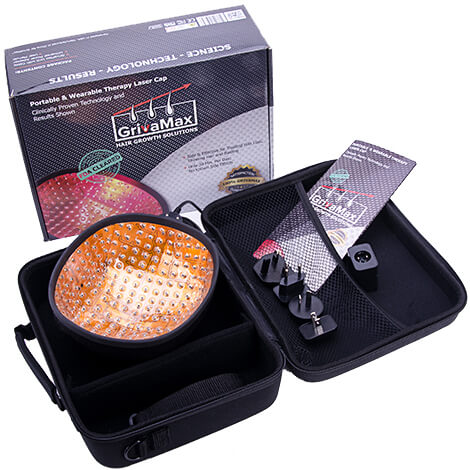Alopecia Universalis is a complicated form of alopecia– a pathological condition of hair loss in both men and women of different ages. It differs from other forms of alopecia and almost can’t be treated. The result is the total disappearance of hair on the head and body.
According to the Orphanet website that has data about various rare diseases, in 2017, Alopecia Universalis was diagnosed in 25 people out of 100,000 (which is approximately 1 in 4,000 people).
Today, the exact cause of Alopecia Universalis is unknown. Doctors say that this is an autoimmune disease, when the immune system mistakenly attacks the hair follicles. Genetic and environmental factors influence the appearance of the disease as well. Today, there is no cure for this type of baldness, but sometimes hair growth is restored on its own.
Most people diagnosed with Alopecia Universalis have no other symptoms. Some patients may experience a burning sensation or itching on the skin. In some cases, alopecia can be associated with atopic dermatitis or thyroid disease. The disease can be accompanied by anxiety, behavioral disorders, depression, and paranoid disorders.
Symptoms of Alopecia Universalis
If you begin to lose hair on your head and other parts of your body – this is the main symptom of severe baldness. Symptoms include the loss of:
- hair on the head;
- eyebrows;
- nostril hair;
- eyelashes;
- the hair on the legs, arms, armpits, etc.
Skin with Alopecia Universalis never blushes, and a patient may experience light itching and burning sensations. Atopic dermatitis is an inflammation of the skin (eczema). The change in the color and the shape of the nail plate is not a symptom of Alopecia Universalis.

Risk factors and causes of hair loss
According to doctors, certain factors may increase the risk of this type of alopecia. This is an autoimmune disease. The immune system of the body attacks its own cells. It mistakenly attacks the hair follicles. The protective mechanism causes hair loss.
Why some people develop autoimmune diseases is not known. However, Alopecia Universalis can be a hereditary condition. Patients with focal alopecia have a higher risk of developing other autoimmune diseases such as vitiligo and thyroid diseases. Stress can also trigger the onset of Alopecia Universalis, but this has not been officially proven and requires additional research.
Sometimes doctors prescribe a skin biopsy to confirm or disprove a pathological condition. You may also need a blood test. This study will help to eliminate other diseases that cause hair loss.
Alopecia Universalis Treatment
The purpose of treatment is to slow down or stop the hair loss. In some cases, the therapy demonstrates a positive result. The success rates vary due to the fact that Alopecia Universalis is a severe type of baldness. A doctor can prescribe corticosteroids to suppress the immune system and recommend immunotherapy. A specialist can also offer therapy with ultraviolet irradiation – the procedure promotes blood circulation and activation of hair follicles.
Prognosis for Alopecia Universalis
Some patients lose all their hair forever. The treatment does not help. In other cases, the therapy is effective and the hair begins to regenerate. It is impossible to predict how the body will respond to treatment. In any case, it is worth trying to improve the situation and trust modern medicine.
If baldness creates psychological discomfort, you need support. Talk to your doctor, and get information about local support groups or consultation. A psychologist and an individual discussion with a professional therapist can help.
 1,549
1,549














